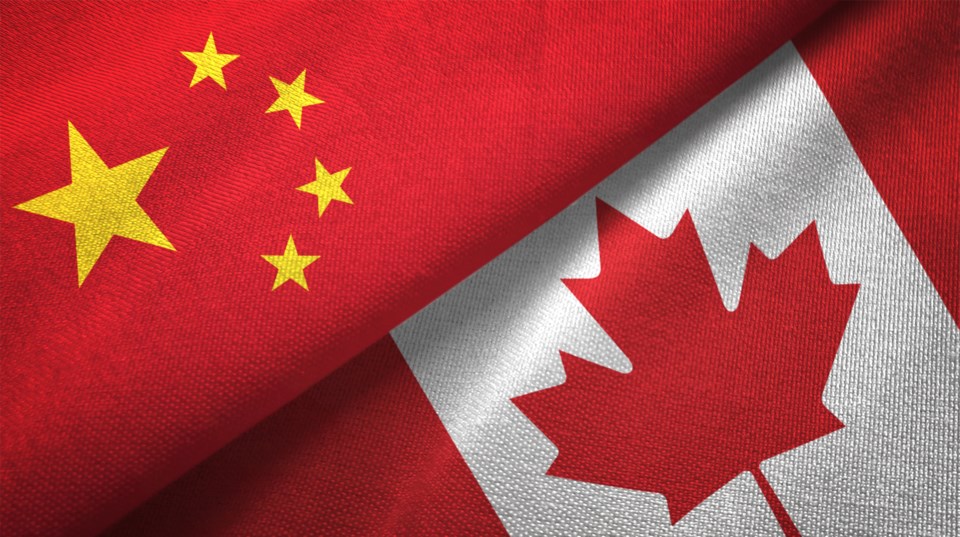An immigration tribunal panel in B.C. has ordered the deportation of a Chinese woman who worked for an organization it has deemed to be conducting espionage against Canadians, on behalf of the Chinese Communist Party (CCP).
The Immigration and Refugee Board of Canada (IRBC) ruled Jing Zhang is inadmissible to Canada on grounds she worked for the Overseas Chinese Affairs Office (OCAO), which is conducting surveillance and intimidation against Canadian citizens to ultimately generate foreign policy support for the People’s Republic of China.
Zhang was employed by the OCAO from 2008 to 2019 and during this time frequently travelled back and forth between China and Canada. Zhang is not a Canadian citizen nor a permanent resident. She specifically worked as Director of Public Relations for the Yangzhou Municipal OCAO from 2009 to 2019 and was the Director of Overseas Liaison for the Yangzhou Municipal Federation of Returned Overseas Chinese — entities now under the control of the CCP’s foreign propaganda branch, the United Front Work Department.
The IRBC tribunal panel, headed by Colleen Zuk, ruled Zhang inadmissible Aug. 28 in a Vancouver federal court and issued a deportation order; however, the decision was only recently released publicly.
The Minister of Public Safety and Emergency Preparedness applied for the order against Zhang, claiming the OCAO “is an organization that engaged in acts of espionage against Canada, and against Canada’s interests, by infiltrating and gathering information on overseas Chinese communities in Canada and other countries, targeting Chinese dissidents such as Falun Gong practitioners and other minorities including Uyghur and Taiwanese populations, as well as Chinese Canadian citizens.”
The minister did not claim Zhang conducted espionage herself; rather her long-term affiliation with the OCAO made her inadmissible. The panel did find, however, that Zhang actively worked for the OCAO, travelled on behalf of the OCAO and “represented” the organization internationally while being aware of its tactics.
According to the decision, Zhang argued that she had made multiple visas to Canada, wherein she truthfully detailed her employment in government positions and travel history.
However, the panel found discrepancies in Zhang’s testimony and she “tried to downplay her association with the OCAO and her government positions during her inadmissibility hearing testimony, as well as her knowledge of the interference work being conducted by the OCAO.”
The panel found Zhang’s work ultimately contributed to the goals of the OCAO.
How does the OCAO operate?
The decision outlines some methods of the OCAO, based on a report from the Canada Border Services Agency (CBSA) and academic work, including a 2012 report from University of Canterbury political scientist James To titled “Beijing’s Policies for Managing Han and Ethnic-Minority Chinese Communities Abroad.”
To describes the OCAO as a CCP entity tasked to conduct “overseas Chinese affairs work,” something he coins as “qiaowu.”
Zhang, the decision noted, was “fulfilling the objectives of the OCAO and its implementation of qiaowu.”
Qiaowu is a form of people-to-people diplomacy and propaganda that appeals to “ethnic pride” in “helping the motherland advance.” It seeks to “maintain a benevolent public face through long term inclusive forms of co-optation and transformation work seeking sentimentality, loyalty, and support” for China and the communist party, notes To, as summarized in the decision.
To do this, the OCAO creates or co-opts existing regional friendship and cultural groups and societies to monitor ethnic Chinese people, whether they are PRC nationals or Canadian citizens. Groups are ultimately controlled by the People’s Liberation Army (PLA) and Ministry of State Security (MSS), whose handlers cultivate relations with foreign political parties, diaspora communities and multinational corporations.
The panel also accepted evidence from Alex Joske, an analyst for the International Cyber Policy Centre at the Australian Strategic Policy Institute.
Joske has summarized a “non-exhaustive” list of the overseas functions of the OCAO includes: “Increasing the CCP’s political influence, interfering in the Chinese diaspora, suppressing dissident movement, building a permissive international environment for a takeover of Taiwan, and intelligence gathering.”
Qiaowu, said To, uses a carrot and stick approach, offering business opportunities to those who comply while threatening those who do not, as well as their families back home.
The decision points to reasonable evidence suggesting high-level foreign interference by the OCAO here in B.C.
“There are reasonable grounds to believe that Ms. Zhang’s employment services targeted overseas Chinese and included engagement with her target groups both inside China and the diaspora. Her target populations included students, prominent individuals, government personnel and groups, and businesspersons,” wrote Zuk.
“There are reasonable grounds to believe that she also liaised with the Foreign Affairs Office and the local Chinese embassies who took charge of the overseas visits,” added Zuk.
During Zhang’s second CBSA interview on Sep. 28, 2022, Zhang “confirmed that the Foreign Affairs Office kept contact information on influential people in the Chinese communities outside of China.”
“Her role aligned with the goals of the OCAO to attract overseas Chinese back into the fold of the Chinese nation state and to project them on to the nation state agenda, the underlying goal of which was to eliminate potential threats and rival discourses that challenged the CCP’s power,” Zuk added.
The decision against Zhang follows the Jan. 19, 2022 denial of a judicial review against the deportation of Yuxia Gao on grounds Gao’s spouse was employed by the OCAO. That decision also relied on the evidence of New Zealand’s To and the CBSA.


